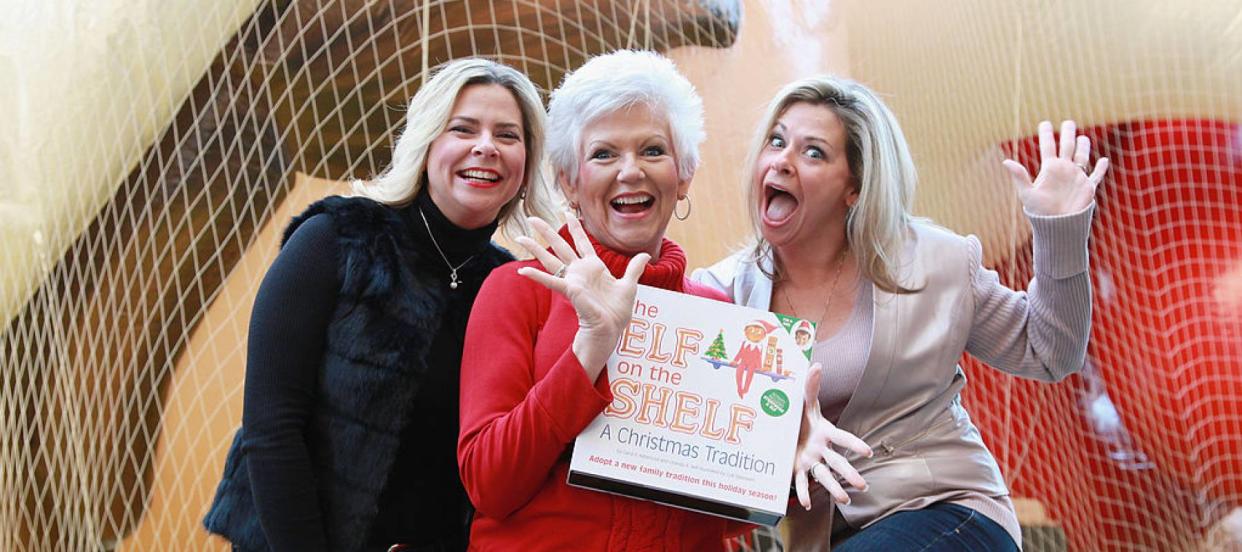‘Banks don’t really look at a startup elf company’: How The Elf on the Shelf founders used debt to turn a holiday gimmick into an empire. You can use their playbook to chase your own dreams

The Elf on the Shelf may be ubiquitous around the Christmas season, but it wasn’t an easy path getting there.
The Elf on the Shelf is a doll based on a book. It “watches” kids for good behavior leading up to Christmas. Kids believe that the elf reports back to Santa every night about who deserves to be on the naughty and nice lists.
But 2005 wasn’t so nice for the company’s founders. Bloomberg reports that this is when Carol Aebersold and her twin daughters, Chanda Bell and Christa Pitts, created The Elf on the Shelf: A Christmas Tradition book and the doll to accompany it. Neither publishers nor bankers wanted in.
Don’t miss
Commercial real estate has outperformed the S&P 500 over 25 years. Here's how to diversify your portfolio without the headache of being a landlord
Finish 2023 stronger than you started: 5 money moves you should make before the end of the year
The US dollar has lost 87% of its purchasing power since 1971 — invest in this stable asset before you lose your retirement fund
“When you think about traditional financing models, banks don’t really look at a startup elf company as being investment-worthy,” Pitts tells Bloomberg.
The family was determined to get 5,000 copies of the book and toy made. So Bell took on credit card debt, Pitts sold her Pennsylvania home and their parents cashed in their 401(k) money to make it happen.
Their debt literally paid off. The Elf on the Shelf empire is now estimated to be worth $100 million, according to Bloomberg. The outlet adds that 28.3 million Elf dolls, and their pets (yes, it’s a whole universe) have been sold around the world since their 2005 launch.
So how can you take a page from The Elf on the Shelf and use debt to build your own North Pole?
Naughty vs. nice debt
Though debt is generally frowned upon by most personal finance experts, some high-profile money gurus, such as real estate investing mogul Grant Cardone, see it differently.
“While it’s true that too much debt can be a bad thing, it can be one of the most powerful tools in a real estate investor’s arsenal,” he wrote in a blog post.
He would know. His private equity firm, Cardone Capital, says that its assets are valued at over $4 billion.
Cardone argues in his blog post that there is “bad debt” and “good debt.” Bad debt is debt that doesn’t contribute to your future wealth growth, like paying off cars and credit cards. But good debt is “used to purchase assets that appreciate or produce income,” like real estate or investments.
He would likely believe that The Elf on the Shelf founders accrued good debt when they decided to put their credit score, homes and 401(k)s on the line to create a company. Though not everyone creates a viral Christmas toy, Cardone does believe that good debt is one that attempts to produce income.
In this vein, you can also incur small debts to produce more income. For instance, you can spend a bit of money trying to start a low-level side hustle and see how far it gets you. The better it does, the more money you can put into it.
Read more: 'It's not taxed at all': Warren Buffett shares the 'best investment' you can make when battling inflation
Expand your money-making
Now that Elf on the Shelf has proven to be a success, the company put huge efforts into expansion to generate more wealth. Bloomberg reports that the Elf’s parent company, The Lumistella Company, has over 75 licensing deals around the world for ice cream, mall experiences and more.
This is a similar way that Cardone generated his wealth. He used debt to start out investing in real estate, made his money back and then kept investing.
“Real estate is the best example of good debt because it has the potential to generate both capital appreciation and cash flow,” he says in his blog post.
But if buying huge amounts of property seems out of reach, you can still get your piece of the fruit cake. You can invest your money in a real estate investment trust (REIT). You can buy shares of REITs just like you would with stocks. You receive a shareholder dividend from the rents collected on those REIT properties, which range from commercial to residential.
If all you want for Christmas is more money, “good” debt may be a way to get you there.
What to read next
Thanks to Jeff Bezos, you can now cash in on prime real estate — without the headache of being a landlord. Here's how
Worried about the economy? Here are the best shock-proof assets for your portfolio. (They’re all outside of the stock market.)
Rising prices are throwing off Americans' retirement plans — here’s how to get your savings back on track
This article provides information only and should not be construed as advice. It is provided without warranty of any kind.
